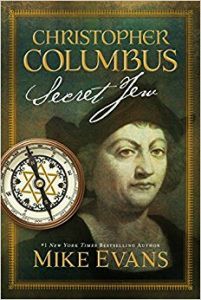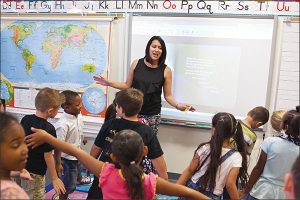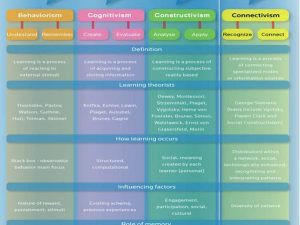Teachers
(Spanish version here) A teacher walks through the knowledge of many sciences and theories without accepting one in particular; His role Is not to defend scientific positions, but to expand their diffusion and to question their postulates, evidencing the deficiencies of theories. A teacher shows his students the way to understand knowledge, to research, sowing in them the interest in study, so that they learn to evaluate and improve, to experiment with them and to document their discoveries with scientific rigor. A teacher should not assume the defence of a particular position, but must commit to disseminate any of the arguments so that the student decides what his position will be; In particular, the teacher should show students the method to discover new knowledge and to question, doubt and test their premises, inviting his students not to be satisfied with incomplete results, with half-truths.
English translation by Joe Barcala, With the help of Jesús García Barcala
 The teacher would only be a professor if he did not show values. He/she is a watchman of human well-being, of its potential, defender of the truth, responsible with its social relationships and the environment. He does not impose knowledge, he loves it. When a child or young person asks, the teacher is not satisfied with a simple answer. He/she is able to show the wide range of possibilities, leaving more questions open for students to understand their environment, their history, methods and possible future learning alternatives. This is best understood by an example: “Teacher, who discovered America?” The response of a professor would be Christopher Columbus. That of a professor would go much further. From the path that the ancestors took to cross the Bering Strait, colonization to the south, the different versions of other northern peoples such as the Vikings, the social conditions that prompted Columbus to create new trade routes, the cultural imposition of The conquest, the plunder of American wealth, the enslavement of the peoples at the service of the various crowns …
The teacher would only be a professor if he did not show values. He/she is a watchman of human well-being, of its potential, defender of the truth, responsible with its social relationships and the environment. He does not impose knowledge, he loves it. When a child or young person asks, the teacher is not satisfied with a simple answer. He/she is able to show the wide range of possibilities, leaving more questions open for students to understand their environment, their history, methods and possible future learning alternatives. This is best understood by an example: “Teacher, who discovered America?” The response of a professor would be Christopher Columbus. That of a professor would go much further. From the path that the ancestors took to cross the Bering Strait, colonization to the south, the different versions of other northern peoples such as the Vikings, the social conditions that prompted Columbus to create new trade routes, the cultural imposition of The conquest, the plunder of American wealth, the enslavement of the peoples at the service of the various crowns …
 A teacher does not give a conclusion, allows the student to arrive at his own definitions of truth, take the lessons of the past and postulate them in a personal future based on the wide and diverse knowledge. This way of teaching will lead them to become more interested in humanity, to be responsible with their environment, not to comply with half-truths, to create new research and to understand that the subjects of study are multidisciplinary, involving a great number of ethical factors, historical, scientific, cultural, artistic, sociological and much more.
A teacher does not give a conclusion, allows the student to arrive at his own definitions of truth, take the lessons of the past and postulate them in a personal future based on the wide and diverse knowledge. This way of teaching will lead them to become more interested in humanity, to be responsible with their environment, not to comply with half-truths, to create new research and to understand that the subjects of study are multidisciplinary, involving a great number of ethical factors, historical, scientific, cultural, artistic, sociological and much more.
Teaching values
The teacher lives and teaches values, but does not impose them. His main interest is in continuous learning, because he loves knowledge, he makes incursions day by day into new challenges and thus infects his students. Always invents new strategies so that the student is interested and takes scientific positions at any level. Therefore, he is secular; Can not and should not assume specific moral values in the classroom. It would be like being in favor or against Christopher Columbus. The teacher rather watches over history and humanity from a much higher point of view, avoiding cultural biases or boundaries. He can not opt for Mohammed or Christianity, for it recognizes its origins and the present confrontations. And he may have children sitting at the desks at the same time; He puts interest in knowing history, to value its postulates, to recognize its influences on the world’s geography; It will be the student who decides his interest in one of them or assumes a more futuristic, sociological or cultural human vision.

Teachers does not defend a political party either; He understands that ideologies converge and diverge at different times. Nor is he a supporter of extremism of the left or right, of imperialism or nationalism. He teaches his students to evaluate the pros and cons of the positions of each political institute and guides them in their research to question the influence of each one, to doubt their fallacies and to recognize their successes.
Research
For all the above reasons, the teacher should not assign tasks but guide the interest of the students that he generates; The task is imposed by the pupil himself, satisfying the curiosity that the teacher causes daily. Research should not be tasks, but formulas to find the truth, the constant becoming of a student whose interest increases as he advances in his ideals of life. Curricula in this regard are nothing more than mere references that guide new teachers in the pupils’ learning map and not a narrow box of methodical regulation. What does a teacher learn? Double and for each student. He follows the steps of each one’s research as well as understand the part of the process in which they find themselves and the very personal way to face the truths and to cross each one’s investigation routes. The teacher, in short, should be the most important person in human communities and not the degrading bureaucratic people who they have become in many cases.

